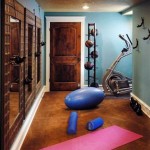Study Room Decoration Tips: Creating a Productive and Inspiring Space
A well-decorated study room can significantly influence your productivity and motivation. Transforming your study space into a conducive learning environment requires careful consideration of factors such as lighting, furniture, and decor. This article explores practical tips for decorating your study room, aiming to create a comfortable and inspiring atmosphere that fosters focus and creativity.
1. Optimize Natural Light and Lighting
Natural light plays a crucial role in setting the mood and promoting well-being. Position your desk near a window to maximize natural light exposure. This not only brightens your study space but also helps regulate your circadian rhythm, improving sleep and alertness. However, avoid direct sunlight, which can cause glare and strain your eyes. To manage light intensity, invest in curtains or blinds that allow you to control the amount of light entering your room.
In addition to natural light, invest in adequate artificial lighting. A desk lamp with adjustable brightness is essential for providing focused light on your workspace. Consider using warm white LED bulbs for a relaxing and inviting ambiance. Avoid harsh overhead lighting, which can lead to eye fatigue and headaches. Experiment with different lighting options to find what works best for you.
2. Create a Comfortable and Ergonomic Work Environment
Your study space should be comfortable and conducive to prolonged periods of sitting and working. A comfortable chair with good lumbar support is essential. Consider investing in an ergonomic chair that allows for proper posture and minimizes strain on your back and neck. An adjustable desk with sufficient height and width is also crucial for maintaining a comfortable posture and providing ample workspace.
Ensure that your desk is clutter-free and organized. Use storage solutions such as drawers, shelves, and organizers to keep your study supplies neatly arranged. A clean and organized workspace promotes a clear mind and reduces distractions. Consider incorporating a whiteboard or corkboard to jot down ideas and notes, enhancing your productivity.
3. Add Personality and Motivation
Personalizing your study room with decor that inspires and motivates you is essential. Surround yourself with colors, patterns, and objects that uplift your mood and create a positive atmosphere. Consider incorporating elements from your hobbies and interests, such as artwork, photographs, or inspirational quotes that resonate with you.
Plants are a great addition to any study room. They purify the air, reduce stress, and add a touch of natural beauty. Choose low-maintenance plants that thrive in indoor environments. You can also incorporate decorative items such as candles, lamps, and rugs to add warmth and personality to your space.
4. Embrace Color Psychology
Colors can significantly impact your mood and concentration. Research suggests that certain colors can promote focus and creativity. For example, blue and green are often associated with calmness and productivity. Yellow, on the other hand, can stimulate creativity and energy. Consider incorporating these colors into your study room through wall paint, furniture, or decorative accents.
However, avoid using too many colors in your study room, as this can be overwhelming. Stick to a limited color palette and use contrasting colors to create visual interest. Use a color wheel to create harmonious color combinations that complement each other.
5. Minimize Distractions
A study room is meant for focused work, so minimizing distractions is crucial. Avoid placing your study space near high-traffic areas or areas with noise. Consider using sound-absorbing materials such as rugs or curtains to reduce noise levels. Keep your phone and other electronic devices out of sight to avoid temptation.
If you find yourself easily distracted, consider investing in noise-canceling headphones or a white noise machine. These can help block out external distractions and create a more peaceful study environment.
6. Personalize Your Space
Your study room should be a reflection of your personal style and preferences. Incorporate elements that make you feel comfortable and motivated. This could include displaying your favorite books, artworks, or memorabilia. Personalization helps to create a sense of ownership and encourages you to spend more time in your study space.
Don't be afraid to experiment with different design elements and layouts until you find what works best for you. The goal is to create a space that you enjoy spending time in and that helps you to stay focused and productive.

10 Study Room Decoration Ideas For Your Home Designcafe

Awesome Study Room Design Ideas And Decoration Tips In 2025

Diy Study Table Ideas To Make Your Life Easier

A Guide To Study Room Design Styles Designcafe

10 Study Room Decoration Ideas For Your Home Designcafe

How To Decorate And Furnish A Small Study Room

How To Decorate Study Room 10 Decoration Ideas Make Work Or Fun

Best Study Room Design Ideas For Your Home Livspace

10 Study Room Decoration Ideas For Your Home Designcafe

Study Room Décor Ideas To Help You Focus Beautiful Homes







